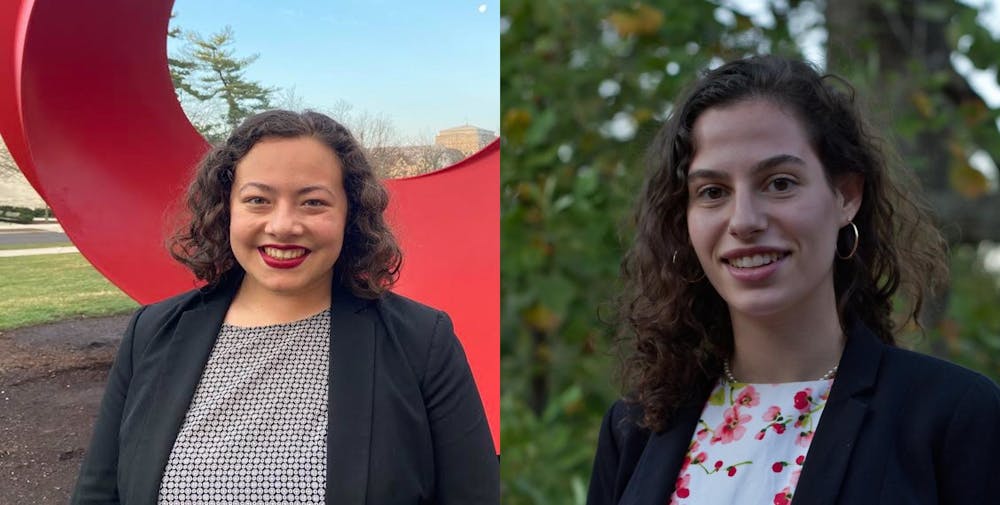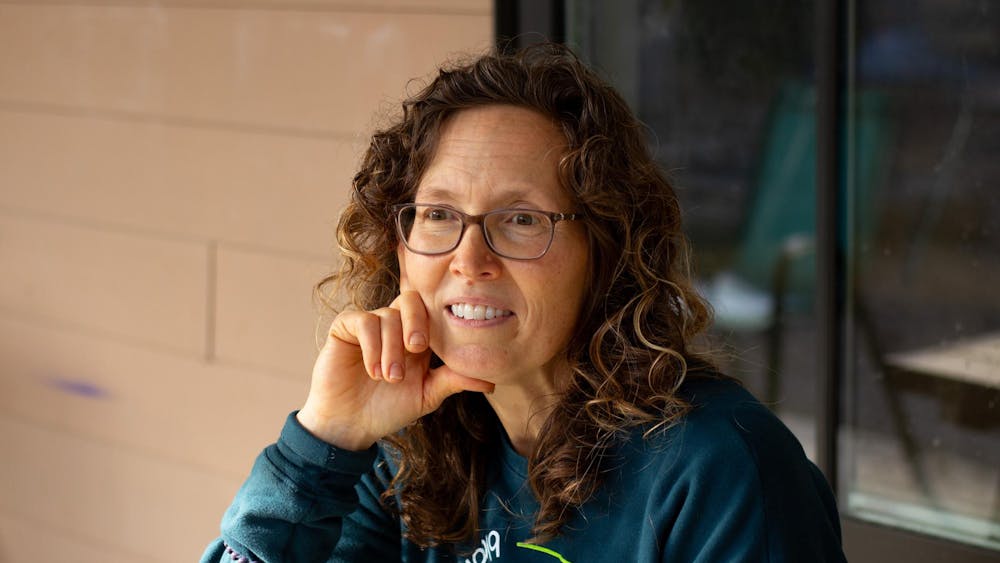The IU Student Government presidential election between the campaigns Inspire and Defy will take place this week.
On the Inspire ticket is Rachel Aranyi, the education committee chair and off-campus representative, and her running mate Ruhan Syed. On the Defy ticket is Congressional Secretary Madeline Garcia and her running mate Arianna Hoye.
Although both campaigns are running relatively progressive platforms, both candidates have a history of involvement with the pro-Israel lobbying group Indiana Israel Public Affairs Committee and have each backed resolutions in IUSG to suppress the free speech of students and lecturers on the issue of the Israel-Palestine conflict.
IIPAC and its parent organization the American Israel Public Affairs Committee have repeatedly backed measures to suppress freedom of speech on college campuses, including sponsoring anti-boycott legislation and attempting to ban the Indiana University Palestine Solidarity Committee last spring in an attempt to stifle pro-Palestinian activism.
Aranyi has served as the campus relations coordinator for IIPAC, and Garcia is currently serving as a board member. Garcia has been very open about her position in IIPAC, even putting it in her student government biography and touting its endorsement. Aranyi, on the other hand, has seemingly made attempts at expunging her involvement during the lead-up to this election.
On November 18, 2018, in conjunction with IIPAC, Aranyi sponsored congressional resolution No. 18-19-12 to the IUSG, which condemned an IU professor’s lecture series on Middle Eastern politics and ACLU Director Jamil Dakwar’s lecture on Palestinian human rights on the basis that the Boycott, Divestment and Sanctions movement and its supporters are anti-Semitic.
This resolution was viewed as highly problematic because it misrepresented peaceful advocacy on behalf of Palestinian human rights as anti-Semitic and akin to terrorism.
Although both Aranyi and Garcia advocated and voted for this resolution, Aranyi spearheaded the attempt to ban the lectures, even emailing the university administration. In the email, she suggested that Dakwar might “demonize, attempt to delegitimize or apply double standards to the state of Israel” being that he is an advocate for the BDS movement.
IUSG president Alex Wisniewski vetoed the bill.
“I do not believe it is in the purpose of IUSG to condemn academic discussions that promote free speech, encourage the voice of underrepresented students and allow for opportunities to learn about a different world view,” Wisniewski told the Indiana Daily Student in 2018.
Silencing pro-Palestinian voices is an attempt at hiding legitimate critiques of the Israeli government under the guise of anti-Semitism. With either Aranyi or Garcia as president, a similarly disastrous anti-BDS resolution seems likely to be introduced.
Regarding her vote, I posted a question as an individual to the Inspire campaign on Facebook about the resolution and did not receive a response.
Upon reaching out to Aranyi for an interview, the campaign declined but referred me to a statement sent to the Muslim Student Association and the Middle Eastern Student Association, which said her campaign does not take a position on the Arab-Israeli conflict and does not intend to influence debate on the issue. MSA and MESA have since retracted their endorsement of her campaign.
Aranyi later said in an email that the goal of her resolution was to fight anti-Semitism on campus and that any future resolutions will be evaluated on a case-by-case basis.
In an interview with Garcia, she said she stands by her vote for the resolution and that her campaign does not take a position on the BDS movement.
Allegations of anti-Semitism should not be taken lightly. We cannot mistake legitimate critiques of the Israeli apartheid system for anti-Semitic tropes.
Both Aranyi and Garcia claim to be in favor of freedom of expression, but they both have been outwardly against allowing an open dialogue on the Israel-Palestine conflict through their voting records.
When you cast your vote this election, think about the precedent each of these candidates will set for free speech on campus. In electing either candidate, the student body will need to hold their feet to the fire to ensure free speech on campus is upheld.
Jonah Hyatt (he/him) is a junior studying political science and philosophy. He is the treasurer of the Palestine Solidarity Committee at IU.






